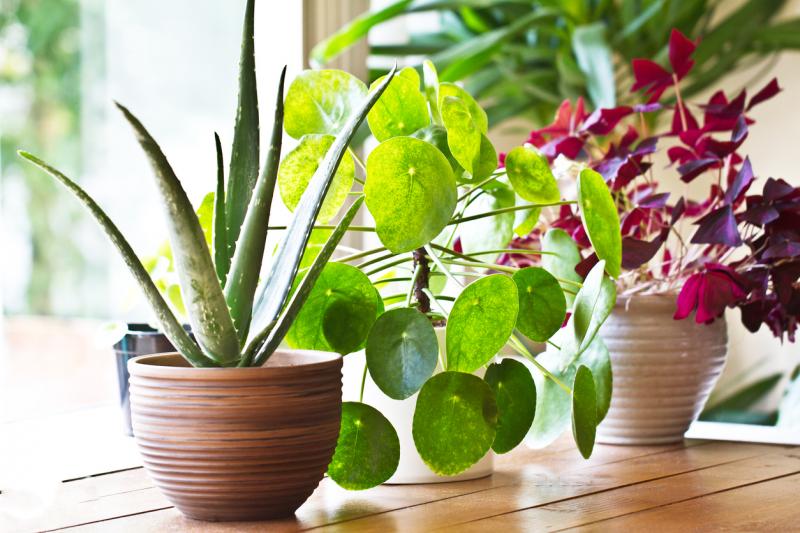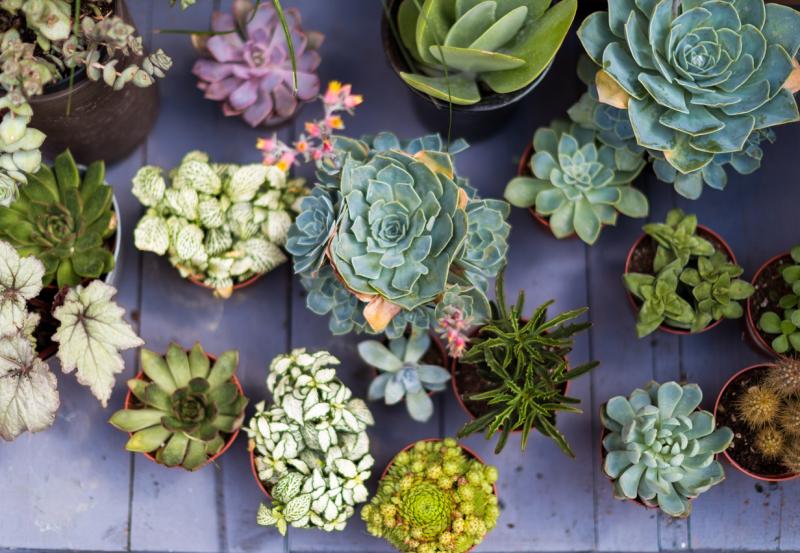UK homeowners have been advised against seven common errors with house plants during the colder months, which include placing them near radiators and overwatering.
Gardening experts from GardenBuildingsDirect.co.uk have revealed the worst mistakes Brits can make when caring for indoor foliage in the winter - full story below:
Houseplants: The Seven Deadly Sins
As houseplants become more popular than ever, seven of the worst mistakes to make when caring for indoor foliage have been revealed.
From over watering to simply placing the wrong kind of plants in certain rooms and locations, garden experts from GardenBuildingsDirect.co.uk have advised novices on what NOT to do when it comes to plant care.
Whilst it’s important to ensure plants are receiving enough nourishment, it’s really easy to over water them, and they shouldn’t receive too much direct sunlight either.
Green fingered hopefuls should also always make sure they purchase plants with labels so care instructions are clear, and never put plants above or near radiators.
A spokesperson for GardenBuildingsDirect.co.uk said: “For those who are new to houseplants, there are a few habits that should be ditched immediately.
“You might think you’re doing the right thing by drowning your little green friends in water and sunlight every day, but this could actually be doing more harm than good.
“Sometimes, it’s as simple as knowing which plants are good for certain locations and environments, because by choosing a plant that won’t grow in your home’s conditions, you’re setting yourself to fail.”
1. Choosing the wrong plants
Even if you have zero gardening experience, you’d know not to plant cactus in Siberia. So, you need to choose plants for the growing conditions in your region and even for their placement in your house, as even interior spaces have their own ‘climate’ requirements: hot or cold, sunny or shady.
2. Over-watering
The one thing most houseplants need above all else is a steady supply of water – but just how much depends on the species. As such, one of the most common things people do wrong is overwatering.
Overwatering, especially when the plant isn't growing, is one of the biggest causes of a plant's demise. As a general rule for common houseplants, compost should be kept moist but not wet, but specialist plants like orchids, succulents and cacti will need completely different conditions. It is always recommended to check plant labels.
3. Watering all your plants on the same schedule
Similar to the previous point, but this emphasises it further. Your succulent does not need to be watered as often as your monstera, and these will require different levels of moisture to your kitchen herbs.
So, whilst it’s easy to remember to water if you do it on the same day every week, it’s not always ideal for your plants, as they could be getting over-water or under-watered.
A good test is to stick your finger in the soil. If it’s dry an inch or so down, water it, but if not, come back in a few days. This will also help you get to know your plants individually and you’ll get better at predicting when they need water as time goes on.
4. Purchasing with no labels
This particularly rings true if you’re a complete beginner with no houseplant experience or ability to recognise different species.
Attempting to grow a plant without a name or specific care instructions is like trying to bake a cake without a recipe. At the very least, you need to know its name so you can research care instructions yourself.
5. Putting plants near a radiator
There isn’t a single houseplant that would be happy above or near to a radiator because no matter how much you water it, the relentless heat will dry it out and cause wilting.
6. Placing them in direct sunlight
It may surprise, but ideally, most houseplants should be kept out of direct sunlight. If you find that your indoor plants are still wilting even with regular watering, try rotating them every few days to avoid lasting damage. On the other hand, too little light will also stunt growth and damage plant health, so place individual plant species carefully.
7. Giving up after your first casualty
If your houseplant dies, it doesn’t mean you’re a useless plant parent with nothing but black thumbs. It could simply be that your home didn’t have the right growing conditions, or that the plant was already dying when you bought it.
Plants die sometimes, but you can only learn from your mistakes. After all, a green thumb is a skill you earn, not something you’re born with.










